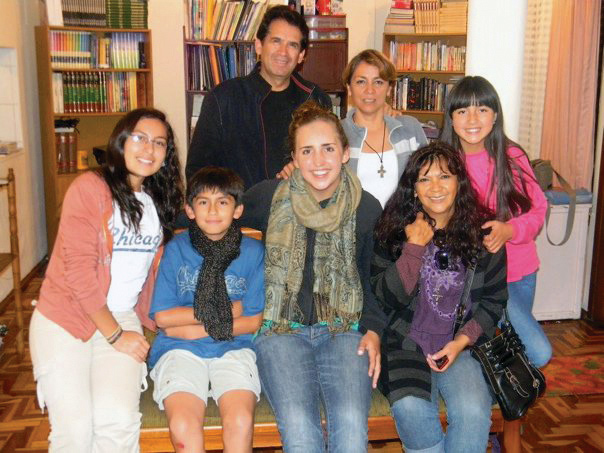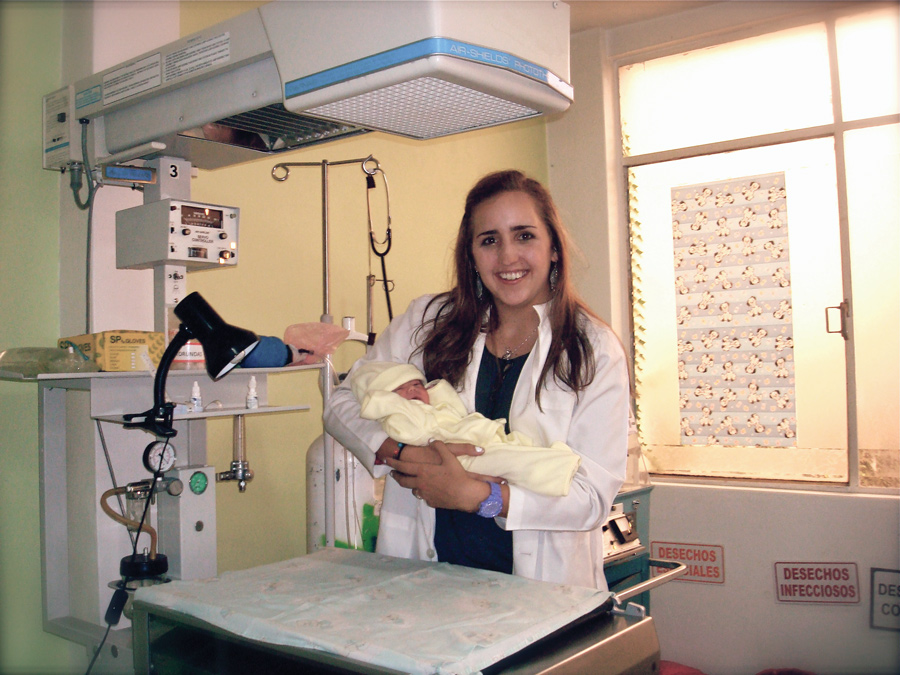International Internship — Six Weeks in an Ecuadorian Maternity Clinic
Skip other details (including permanent urls, DOI, citation information)
: This work is licensed under a Creative Commons Attribution-NonCommercial-NoDerivatives 3.0 License. Please contact [email protected] to use this work in a way not covered by the license.
For more information, read Michigan Publishing's access and usage policy.
Ecuador is one of the poorest countries in Latin America. It is a country struggling to survive. The people in Ecuador live on an average income of 300 dollars a month. This is the first thing my program supervisor told me as I arrived in Ecuador. I was not walking into a paradise vacation, or a country anything close to the United States. While I had no idea what was ahead of me, I knew that the next six weeks would be an unforgettable experience. Little did I know then, it would be an experience that would shape everything I will be doing going forward.
I came to Ecuador for a medical internship and essentially had no time to prepare for it. I found out I would be doing the internship less then a week before I had to leave, and I learned where I was being placed only 12 hours before I stepped onto the plane. But it wouldn’t have mattered how much time I had to prepare for this internship, I could never actually prepare for what happened.
My first day at work was exhilarating—I was literally pushed into an operating room to watch a cesarean section less than 10 minutes after I stepped through the clinic doors. After 30 minutes on the job, I witnessed a child being born. The doctors say the first time a person sees a child being born that they never forget it. It is indescribable to say the least. After that, I was being pulled in many directions, immersed in the flurry of activity in the maternity clinic, and trying to keep up with the amazing doctors and nurses who work there.
The clinic is mainly a maternity clinic, but also provides multiple other services. Due to the overwhelming number of people needing healthcare, the Ecuadorian government has to send I.E.S.S (the equivalent of our Social Security) patients to the clinic as well. In April alone, the clinic delivered 83 babies. The staff at the clinic was swamped, and I landed right into the thick of it. They function with bare bones supplies and outdated technology. The clinic was so poor that to conserve gloves they rarely use them outside of surgery, and even then they try to reuse supplies by sterilizing them in the clinic’s old sanitation station.
The doctors and nurses were extremely welcoming and made an effort to show and teach me as much as possible in the bustle of their daily routines. I was taught how to put in and take out stitches (without ever doing the technique), how to take blood pressure, blood sugar, and other vital signs. I also learned important procedures such as the post-birth evaluation of the newborn, and post-procedure check up. Above all, I got to witness many births and surgeries throughout my six weeks there.

My most vivid memory, by far, was when I got to stand next to the surgeon for a rare opportunity at the clinic: a pediatric brain surgery. An infant’s brain was swelling, which required the surgeon to go in and remove part of the child’s skull to alleviate pressure and prevent brain damage. I was able to be there for the procedure, from the moment the beautiful little girl was brought into the operating room, to the very end when I helped wake her up and bring her to her mother. It was a humbling experience to see such an amazing procedure, something that is taken for granted in the United States with our healthcare system.
Being at the clinic showed me another world. It was challenging at first getting used to the different culture, way of life, and procedures, and learning it all in Spanish. The challenge forced me to adapt to austere circumstances in the clinic, and gave me a new perspective on healthcare. I was in the trenches, so to speak, right up close to the Ecuadorian people and their problems. I was able to hear their stories, and being able to actually help some of the patients was one of the most rewarding feelings I’ve experienced.
But, as any doctor will tell you, there are also the hard times, the times when you cannot help someone—when being a doctor becomes just a fancy title and you are powerless to change an outcome. I learned about these times too. Late one Sunday night a five-month-old child came into the clinic with his mother who was concerned that her baby was very sick. The doctor on duty examined the baby, and was puzzled about what might be wrong with him. To be safe, she hooked him up to the sole heart rate monitor in the clinic and took some blood samples. She told the mother she would be back in a few minutes to check up on the baby. Thirty minutes later, the child was dead and no one knew why. Despite the frantic actions by the doctors and nurses and attempts to revive him, there was nothing they could do to save the child. Worst of all was the why. Even the doctors and nurses could not keep their faces stoic for a loss like this.
I did not know exactly how to react to the baby’s death. I had never experienced something like that before, and while I knew there was a chance of it happening on this trip, I was taken off guard. The experience shook me. It shook us all. It was my toughest lesson to learn, and having been through it I know I have changed. My desire to become a doctor has been fueled even more, and my drive to provide better service, technology, and resources to struggling clinics like this one has become stronger than ever. I realized, standing there in the hallway watching everyone around me break down, that there are clinics around the world with less than this going through this same thing, or worse, on a daily basis. I thought about people who have to go through this everyday because they simply do not have enough resources to provide better care.
Now more than ever, my motivation to bring awareness to such unfortunate circumstances is strong. The notion that many people are dying each day from curable diseases requiring simple treatments is unfathomable. On this internship, I learned so much. I lived with an incredible family that taught me Spanish, their culture, and how to be a better person. I ate food I never would have imagined trying before, and saw places that literally took my breath away. Most importantly, I grew as a person and started to build the foundation for my future as a doctor. This internship was the best decision I have made and it was truly a life changing experience.
I have always said that I do not expect to change the world by myself. I know I cannot do that as one person. But at least I can try to start the change, and maybe my work will inspire others and this might lead to the change we need. This was not just a summer trip for me, it is a lifetime work.

About the Author
Brooke Bidwell is currently a sophomore at the University of Michigan, studying International Studies with a focus on Global Health, and minoring in Creative Writing. After her internship in Ecuador, Brooke began studying advanced Spanish in hopes of becoming completely fluent and returning to South America to become involved in specific issues in global health. After graduating, Brooke plans to attend medical school and eventually work for a nonprofit global health organization such as Doctors Without Borders. She plans to assist countries in need of medical care and promote awareness of health issues in the developing world.


